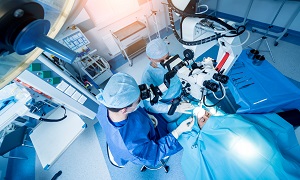Best Brain Cancer Treatment Doctors in India
Here are the most reputed brain surgeons in India for the treatment of brain cancers/ brain cancer surgeries.
Best Brain Cancer Treatment Hospitals in India
- City: Bengaluru, India
Hospital Highlights:
- Fortis Hospital Bannerghatta, Bengaluru was established in 2006.
- The hospital is a 276 bedded multi-specialty tertiary care facility.
- The hospital specializes in cutting-edge medical technology and dedicated patient care services.
- The hospital is equipped with state-of-the-art technologies like trans-radial angioplasty, trans-abdominal cardiac surgery, and computerized TKR navigation surgery.
- The hospital provides specialty medical services in cardiology, cardiac surgery, orthopedics, neurology, neuro-surgery, GI, and Minimal Access Surgery (MAS).
- City: Chennai, India
Hospital Highlights:
- Fortis Malar was established in 1992 and was formerly known as Malar Hospital.
- The hospital specializes in cutting-edge medical technology and dedicated patient care services.
- The hospital is multi-specialty, tertiary care facility with 180 beds.
- The hospital offers comprehensive medical care in specialties such as cardiology, cardio-thoracic surgery, neurology, neurosurgery, orthopedics, nephrology, gynecology, gastroenterology, urology, pediatrics, and diabetes.
- City: New Delhi, India
Hospital Highlights:
- Established in 1996, Pushpawati Singhania Research Institute is one of the top hospitals in the NCR region, as well as one of the top facilities in India for gastroenterology. The hospital is one of South Asia’s first institutes in medical and surgical treatment for diseases related to digestion.
- The hospital is equipped with state-of-the art facilities coupled with the latest equipment as well as renowned consultants from various parts of India as well as other parts of the world.
- City: New Delhi, India
Hospital Highlights:
- State-of-the-art technology and devoted healthcare professionals have been brought together under one roof at Venkateshwar Hospital to provide genuine medical care. The hospital’s professionals work together as a team to deliver the best possible treatment to their patients, using the most sophisticated equipment and information technology.
- Venkateshwar Hospital’s mission is to attain global excellence in healthcare by employing evidence-based, ethical clinical practices and cutting-edge technology by a team of highly skilled experts.
- City: New Delhi, India
Hospital Highlights:
- Sir Ganga Ram Hospital, New Delhi is known to provide the latest medical procedures with the latest technology in all of its units.
- The hospital has a team of reputed doctors, nurses, and healthcare professionals that ensure that patients receive quality care at affordable costs.
- Staffed with a team of highly qualified doctors, dedicated nurses, and paramedical and non-medical staff, the hospital aims to lead in healthcare delivery, medical education, training, and research.
- As per the vision of the founder, the hospital also provides free treatment to the economically weaker sections of society.
- Sir Ganga Ram Hospital also provides training to young doctors under the Diplomate in National Board(DNB) program. The DNB program at the hospital was started in 1984 and it is known for currently running the maximum number of DNB specialties in the country. It also has the distinction of having the first bone bank in India.
- City: Kerala, India
Hospital Highlights:
- Established in 2019, Apollo Adlux Hospital is the first Apollo Hospital in Kerala and the 73rd hospital owned by Apollo Group in India. With the state’s most advanced, comprehensive healthcare infrastructure and cutting-edge technologies, Apollo Adlux Hospital stands as an example of medical excellence in Kerala.
- With over 34 multi-specialty departments, the hospital believes in providing the best quality treatment to its patients at affordable rates, ensuring comfort at their difficult times.
- The 300-bed hospital is managed by a team of highly qualified and experienced experts who delivers exceptional hospitality to their patients and treats them with great compassion.
- With its affiliation with the Apollo Hospitals Group, the hospital aims in providing patients with top-notch healthcare services while also serving communities in Kerala.
- The hospital has good railway and road connections, and is conveniently close to Cochin International Airport.
- City: Gurugram, India
Hospital Highlights:
- Situated near DLF Cyber City, Gurugram, Narayana Superspecialty Hospital is one of the top medical facilities in the Delhi NCR region, catering to the needs of the people. Known for its commitment to quality medical care and patient service, the hospital is a state-of-the-art facility with planned and well-equipped sections, which includes a spacious OPD area as well as comfortable patient rooms.
- It is the closest super-specialty hospital from Indira Gandhi International Airport towards Gurugram, and also the nearest super specialty hospital from DLF Cyber City. It is also close to major residential areas in Gurugram.
- It is part of the renowned Narayana Health Group. Established in 2000, by Dr. Devi Shetty, a renowned cardiac surgeon, it has grown to be one fo India’s leading healthcare groups.
- City: Noida, India
Hospital Highlights:
- Fortis Hospital, Noida, stands as one of the oldest and most trusted healthcare institutions in the region, setting a benchmark for comprehensive medical care.
- As the second mega hub hospital in the Fortis Healthcare Group, Fortis Hospital, Noida, upholds a legacy of trust among more than 1.2 million patients. By integrating top-tier professionals with cutting-edge technology, the hospital delivers superior treatment across various medical disciplines.
- Specializing in advanced Neurosciences, Orthopedics, Kidney and Liver Transplant Programmes, Fortis Hospital, Noida has successfully performed over 1,500 transplants, solidifying its reputation as a leader in specialized medical interventions.
Brain Cancer
Brain cancer is a condition of the brain in which cancer cells arise in the brain tissue. These cells can grow to form a mass of cancer tissue or tumor, which can interfere with the functions of the brain.
Tumors which are composed of cancer cells are known as malignant tumors, and those which are composed of mostly noncancerous cells are known as benign tumors. Cancer cells that develop from the brain tissue are termed as primary brain tumors, while tumors that have spread from other body sites to the brain are known as metastatic or secondary brain tumors.
Signs & symptoms
The signs and symptoms of brain cancer generally depend on the size and location of the tumor.
Some of the common symptoms include:
- Headaches that are generally worse in the morning
- Nausea
- Difficulty walking
- A lack of coordination
- A lack of balance
- Vomiting
- Difficulty thinking
- Memory lapses
- Speech problems
- Vision problems
- Muscle jerking
- Muscle twitching
- Changes in one’s personality
- Numbness or tingling in the arms or legs
- Abnormal eye movements
- Unexplained passing out
- Seizures
- Drowsiness
It is notable that some of the symptoms of brain cancer are also caused by other, less serious conditions and therefore, if you experience these symptoms, there is no need to panic, but it might be a good idea to consult your doctor to evaluate your symptoms just in case.
Causes & risk factors
What exactly leads to brain cancer is unknown. However, certain factors are known to increase the risk of brain cancer, which includes high doses of ionizing radiation and having a family history of brain cancer. Sometimes, cancer in another part of your body also increases the risk. Cancers in the lung, breast, kidney, bladder, or melanoma, a type of skin cancer, are known to spread to the brain commonly.
Other factors that are related to developing brain cancer include:
- Long-term smoking
- Increased age
- Exposure to herbicides, pesticides, and fertilizer
- Working with cancer-causing elements like lead, plastic, petroleum, etc.
- Having an Epstein-Barr virus infection, or mononucleosis
Diagnosis
Physical examination
Imaging tests
Most frequently, a CT scan is generally used for the diagnosis of brain cancer. This test resembles a series of X-rays, and in some cases, a dye also needs to be injected into a vein for better images of some of the internal brain structures. MRI is also popular due to its high sensitivity for detecting anatomic changes in the brain. This test is even known to detect structures of the brain better than a CT scan.
Biopsy
Other tests might also be ordered by your healthcare provider if they think it is necessary to determine the patient’s state of health or to detect any other health problems.
Treatment
There are various types of treatments for brain cancer. Treatment for primary brain cancer might be different than treatment for metastatic brain tumors.
Generally, treatments for metastatic cancer are more focused on the original cancer site. Depending on the type, size, and location of the tumor, you might receive one or more treatments. Some of the treatment options include:
Surgery
Radiation Therapy
Chemotherapy
Other Medications
Rehabilitation
Prevention
There is no known way for preventing brain cancers. However, early diagnosis as well as treatment is known drastically reduce the risk of metastatic brain tumors. You are also at a lower risk of developing cancer if you:
- Avoid exposure to pesticides and insecticides
- Avoid unnecessary exposure to radiation
- Avoid exposure to any kind of carcinogenic chemicals
- Avoid smoking
However, the exact causes that initiate brain cancer, especially primary brain cancer, is still not known to modern science. Therefore, specific preventive measures are still unknown.















